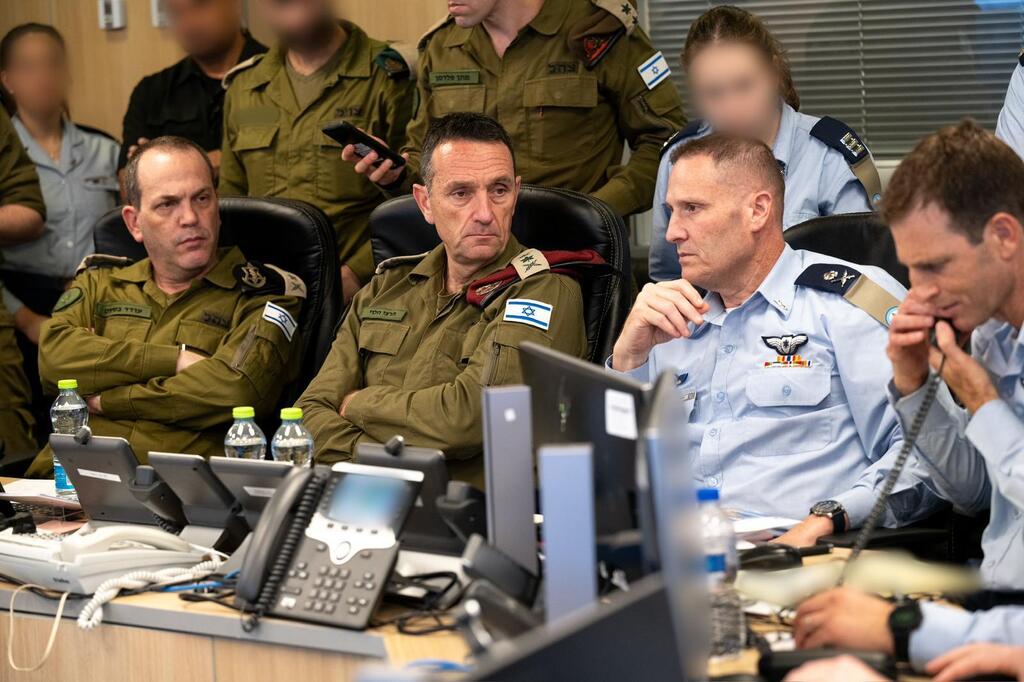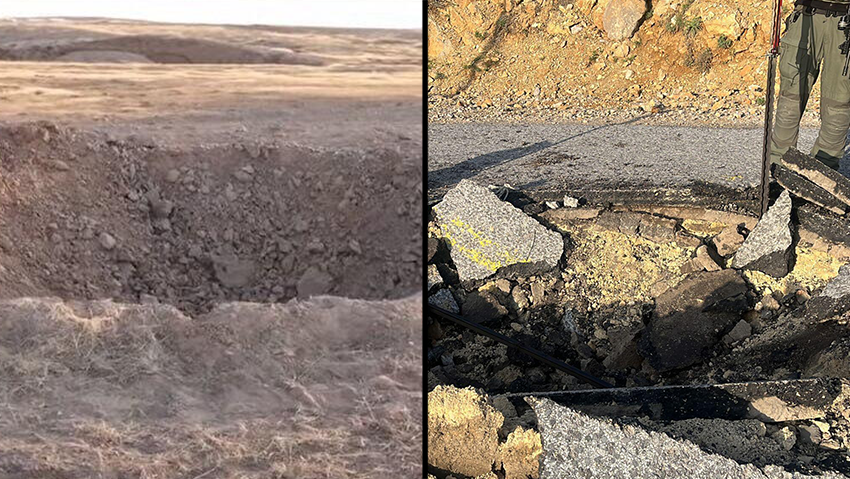Only half of the ballistic missiles Iran fired on Israel during its unprecedented attack against the Jewish state on Saturday were intercepted while the rest fell short, the Wall Street Journal reported on Monday.
According to the report, Saudi Arabia and the United Arab Emirates shared intelligence with the United States that helped facilitate the successful interception of many missiles and drones while Jordan allowed the U.S. to use its airspace to shoot down incoming threats.
Biden hails the US Air Force
A senior U.S. source told ABC that some of Iran's ballistic missiles caused some damage to a C-130 military transport aircraft and some empty storage depots at the Nevatim Airbase in southern Israel.
U.S. President Joe Biden spoke to members of the 335th and 494th fighter squadrons that took an active role in intercepting Iranian ballistic missiles, saying their activity "saved many lives."
The New York Times reported that U.S. efforts helped intercept over 80 drones and at least six ballistic missiles. Additionally, U.S. forces attacked a missile launcher and seven drones in Houthi-controlled Yemen.
While Israeli officials are still contemplating a forceful response to Iran's assault, Iranian Ambassador to the UN Saeed Iravani told Sky News he "knows what our second retaliation would be." Iravani further estimated Israel would not initiate a retaliatory move in response to Saturday's attack.
France, the United Kingdom and Germany have called on Israel to refrain from striking Iran for fear of possibly igniting a regional conflict. German Chancellor Olaf Scholz called on Israel to "prevent an escalation."
2 View gallery


IDF chief conducts assessments with Air Force commanders
(Photo: IDF Spokesperson's Unit)
French President Emmanuel Macron said "we are all concerned about a possible escalation. France will do all it can to prevent it and convince Israel there's no need to retaliate. Things are on shaky ground right now. Iran's response to Israel's attack in Damascus was disproportionate. We must stand by Israel to secure its national defense in the best way possible. In light of Jordan's request, France intercepted attacks from Iran."
UK Foreign Secretary David Cameron said Iran's attack was "disproportionate", and implored Israel to refrain from responding and instead focus its efforts on ceasing all hostilities in Gaza.





